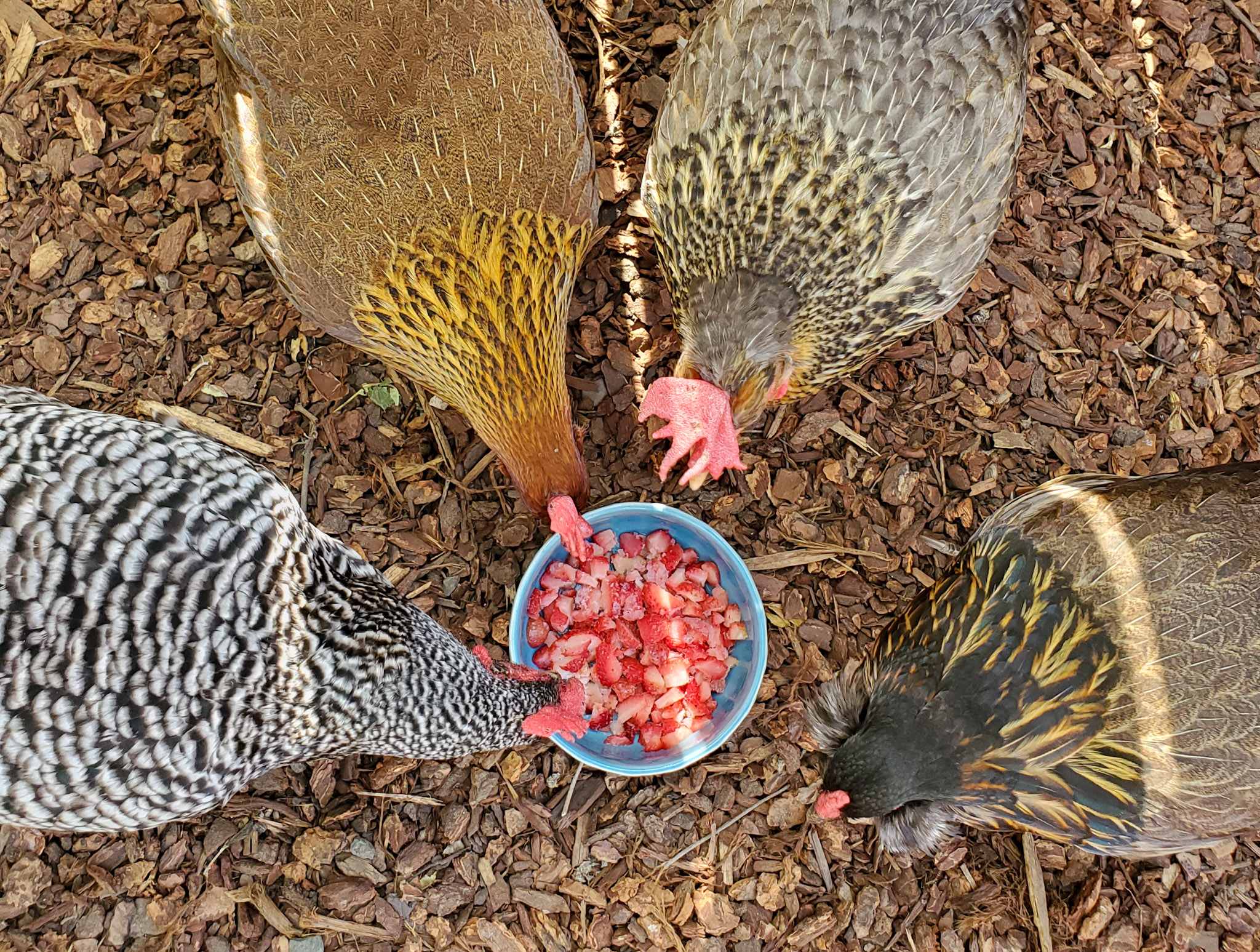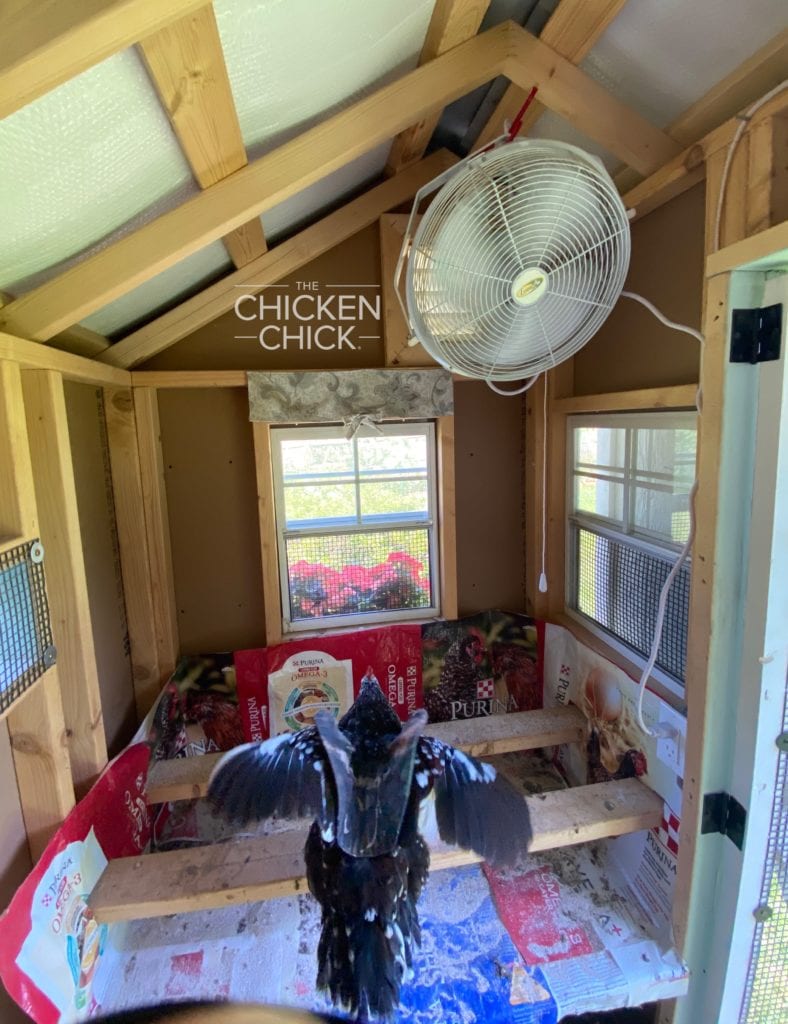For many chicken farmers, hot weather chicken coops provide an optimal way to keep their chickens cool in hot weather. This article will provide tips on how to make sure your chickens remain cool and comfortable in hot weather, while still protecting their health and safety. We will look at the different types of hot weather chicken coops, the best way to set up and maintain the coop, and important considerations when it comes to managing your chickens in hot weather. By following these tips, you can ensure your chickens remain healthy and happy, even in the hottest of climates.
Basics of Hot Weather Chicken Coops

What is a Hot Weather Chicken Coop?
A hot weather chicken coop is an insulated and ventilated structure specifically designed to keep chickens cool in the heat of summer. It typically features a roof, walls, and floor made of heat-resistant materials that effectively block heat from entering the coop, while allowing air to flow freely. Additionally, it is often equipped with fans and other cooling devices that further reduce the temperature within the coop.
Benefits of Hot Weather Chicken Coops
Hot weather chicken coops offer a number of benefits to chicken owners, including improved egg production, better health and well-being for chickens, and reduced stress levels for both chickens and owners. By keeping chickens cool and comfortable, these coops help to ensure that chickens are able to lay eggs at a higher rate and remain healthy in hot weather. Additionally, chickens that are kept in hot weather chicken coops experience less stress than those that are kept in traditional coops, leading to improved behavior and overall happiness. Finally, hot weather chicken coops provide owners with peace of mind, knowing that their chickens are being taken care of in a safe and comfortable environment.
In conclusion, hot weather chicken coops are an excellent way to keep chickens cool and comfortable in the summer months. With the right setup, they can provide many benefits to both chickens and owners alike. Hot weather chicken coops are the perfect way to ensure that your chickens remain healthy and happy in the summer heat.
How to Cool a Chicken Coop

Insulating the Coop
Insulating the coop helps keep the chickens cool and comfortable in hot weather. It can be done by lining the coop with plastic, foil-backed insulation or foam boards. This helps to reflect the sun’s heat away from the coop and keep the interior cooler. Additionally, insulation can help retain the cool air inside the coop, reducing the need for further cooling measures.
Ventilation
Good ventilation is essential for keeping a chicken coop cool in hot weather. Chicken coops should have at least one window and one vent to allow air to circulate and keep the coop temperature regulated. If the coop is too airtight, the chickens may be unable to breathe comfortably, leading to health issues.
Water Coolers
Water coolers are a great way to keep your chickens cool in hot weather. These are devices that use a fan to blow cool air over a container of water, which then cools the air inside the coop. You can also use a wet towel draped over a fan to help cool the air in the coop.
Adding Shade
Adding shade to the coop can also help keep your chickens cool in hot weather. The best way to do this is to build a shade structure over the coop, using trees or an awning. This will help to keep direct sunlight out of the coop and make it more comfortable for the chickens. Additionally, you can also plant trees or shrubs near the coop to provide additional shade.
Further Tips for Keeping Your Chickens Cool
Temperature Monitoring
To ensure that your chickens are not too hot, it is important to monitor the temperature of their coop and the surrounding environment. You should have thermometers both inside and outside the coop, as well as a fan to help circulate the air. You should also ensure that your chickens have plenty of shade and access to water, as both can help keep them cool.
Modifying Roosts
Roosts should be modified to provide your chickens with some extra air flow. This can be done by adding a low-level roost, which will allow air to flow underneath it and keep your chickens cooler. You can also add a fan above the roost to keep air circulating.
Adding Misters and Fans
Misters and fans are a great way to keep your chickens cool in hot weather. Misters can be used to spray a fine mist of cool water onto your chickens, while fans can help circulate cool air. Both of these can be used to help keep your chickens cool and comfortable.
Use of Ice Boxes
Ice boxes can be a great way to keep your chickens cool in hot weather. You can fill the ice box with frozen water bottles, which will help keep the air around the chickens cool. This can provide a great way to keep your chickens comfortable and cool during the summer months.
Frequently Asked Questions
What is the Ideal Temperature Range for Chickens in Hot Weather?
Chickens are fairly hardy animals, but when temperatures soar, it is important to ensure that their environment is kept cool and comfortable. The ideal temperature range for chickens in hot weather is between 18-25°C (65-77°F). Higher temperatures can cause stress and result in decreased egg production.
How Should I Ensure That My Chickens Have Plenty of Water During Hot Weather?
Provide multiple sources of water, including water fountains, buckets, and automatic waterers. Change out dirty water regularly, and add ice cubes to keep water cool. Ensure that water containers are in the shade. Install a mister or fan to help keep the air around the chickens cool.
What should I be aware of when constructing a chicken coop in hot weather?
- Ventilation: Make sure to create adequate ventilation in the coop to let cool air in and hot air out.
- Shade: Provide plenty of shade in the coop to help keep chickens cool. Consider planting trees or shrubs around the coop or adding a roof overhang to shade the coop.
- Insulation: Use insulation in the walls of the coop to reduce the amount of heat that gets trapped inside.
- Lighting: If the coop has windows, use blackout curtains or shades to keep out the sun’s rays and reduce the amount of heat inside the coop.
- Bedding: Use a light-colored bedding material, such as straw or hay, to reflect the sun’s rays and keep the coop cooler.
- Water: Provide access to plenty of cool, fresh water to help keep chickens hydrated in hot weather.
How Often Should I Change the Bedding in My Chicken Coop During Hot Weather?
It is important to regularly change the bedding in your chicken coop during hot weather as it will help keep your chickens cool and comfortable. The bedding should be changed at least every two weeks, or more often if necessary. If the bedding has become damp, or is dirty and smelly, it should be changed even more frequently. Clean, dry bedding will help to keep your chickens cool and provide them with a comfortable area to rest.
What are some signs that my chickens might be suffering from the heat?
Panting: Excessive panting is a sign of heat stress. It occurs when chickens are struggling to cool down and can lead to heat exhaustion or heat stroke.
Loss of Appetite: When chickens are too hot, they may not eat. This can lead to weight loss and a decrease in egg production.
Decreased Egg Production: If your chickens are struggling to maintain their body temperature in the heat, they may not lay eggs as often or as well as they would in cooler weather.
Lethargy: Chickens may become listless if they are suffering from the heat. They may also be less active and spend more time resting in the shade.
Droopy Feathers: When chickens are too hot, their feathers may become droopy and disheveled. This is a sign that they are not able to regulate their body temperature.
Conclusion
Keeping chickens cool in hot weather is an important part of proper chicken husbandry. Adequate ventilation and shade, along with providing plenty of cool water, are essential to a happy, healthy flock. Additionally, utilizing a chicken coop designed specifically for hot weather can provide additional insulation and protection from the elements. With these tips, you can ensure your chickens stay comfortable and safe even in the hottest temperatures.
